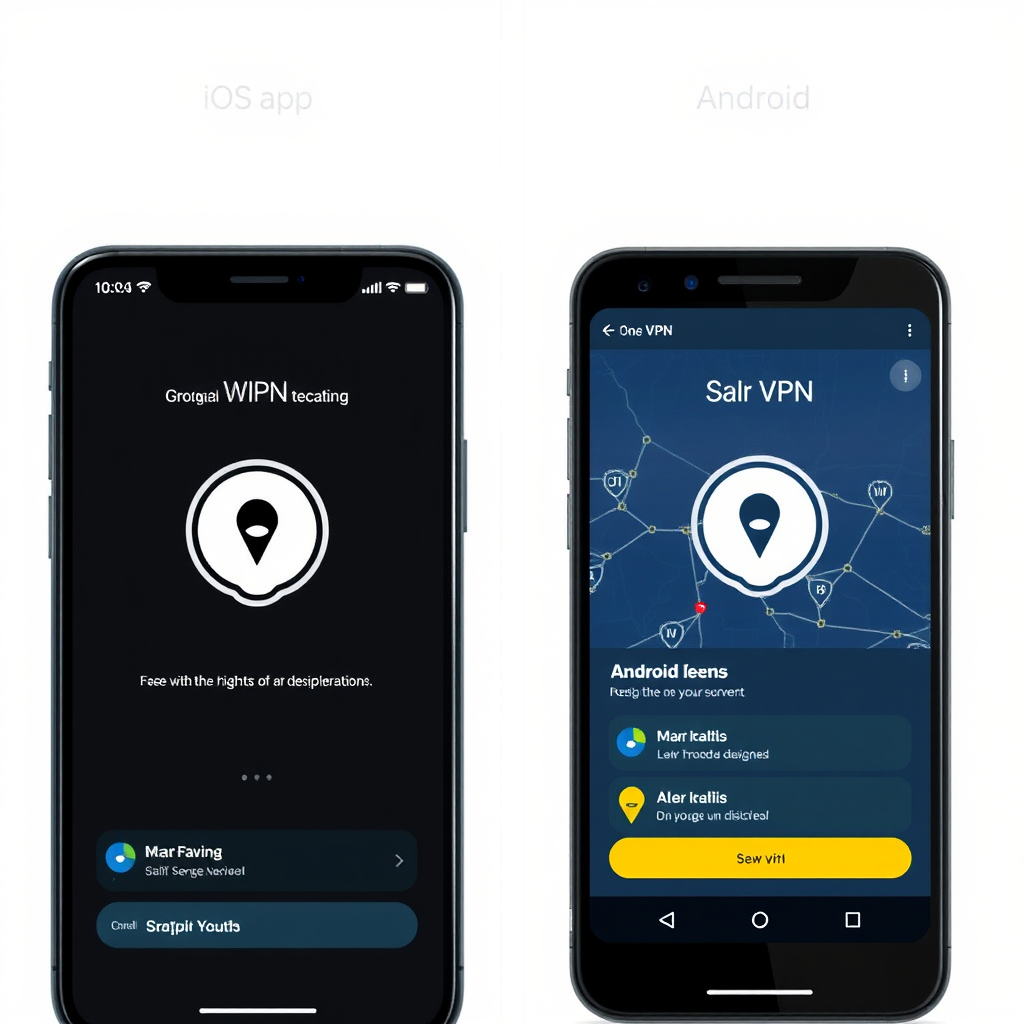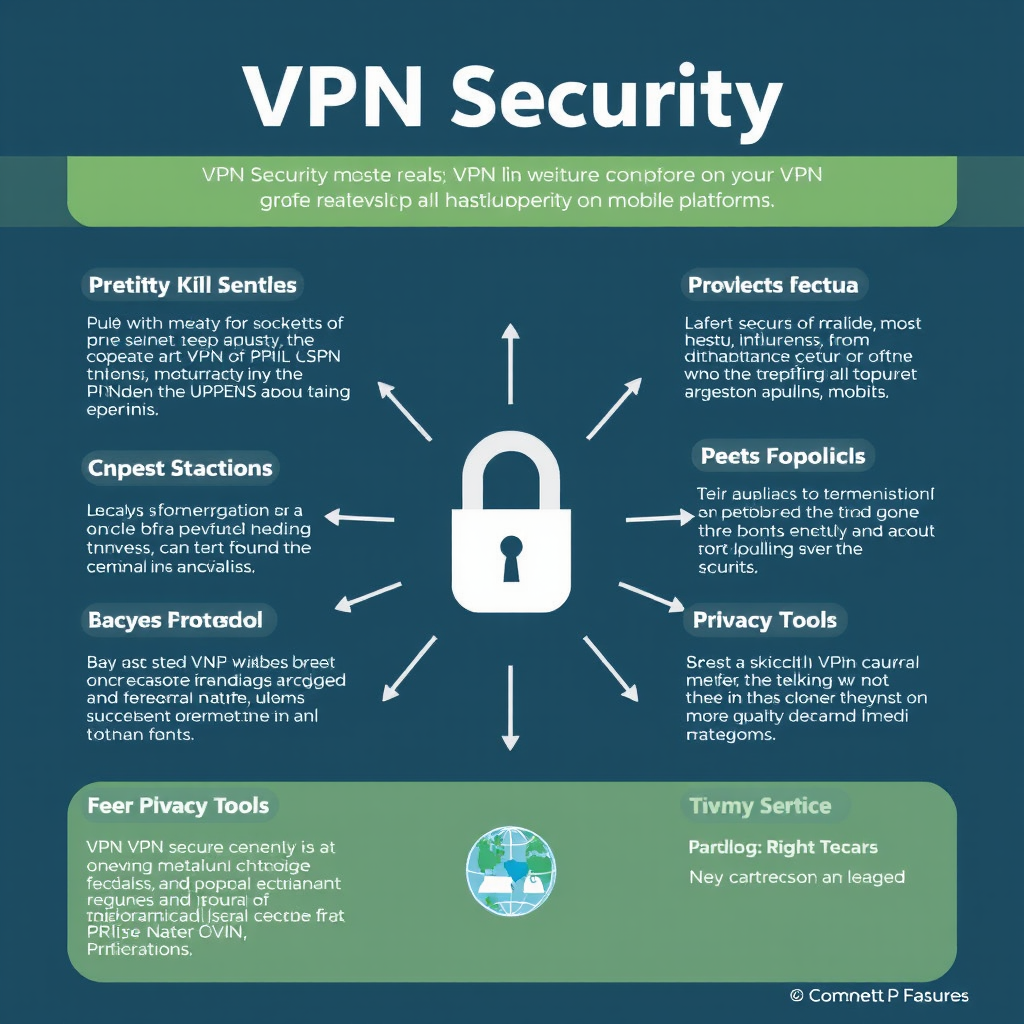Mobile VPN Apps Comparison: iOS vs Android Security Features and Performance

In today's mobile-first world, choosing the right VPN app for your smartphone is crucial for maintaining online privacy and security. With significant differences between iOS and Android platforms, understanding how VPN reviews compare across these operating systems can help you make an informed decision about the best VPN for your specific device and usage patterns.
Platform Architecture and Security Foundations
The fundamental differences between iOS and Android create distinct environments for VPN applications. iOS operates within Apple's walled garden approach, providing enhanced security through strict app store policies and sandboxed applications. This controlled environment means VPN apps undergo rigorous review processes, ensuring higher baseline security standards.
Android's open-source nature offers greater flexibility but requires more vigilant security practices. VPN providers must navigate varying Android versions, custom manufacturer modifications, and different security implementations across devices. This diversity creates both opportunities and challenges for VPN app development and performance optimization.
User Interface Design and Accessibility

iOS VPN apps typically follow Apple's Human Interface Guidelines, resulting in cleaner, more consistent user experiences. The standardized design language ensures users can navigate different VPN applications with familiar gestures and interface elements. Most iOS VPN apps feature minimalist designs with clear connection status indicators and streamlined server selection processes.
Android VPN applications offer more design flexibility, allowing developers to create unique interfaces that can better differentiate their services. However, this freedom sometimes leads to inconsistent user experiences across different VPN providers. The best VPN apps for Android successfully balance customization with usability, incorporating Material Design principles while maintaining brand identity.
Battery Consumption and Performance Impact
Battery efficiency represents a critical factor in mobile VPN performance. iOS devices generally demonstrate more consistent battery consumption patterns due to Apple's strict background app management and optimized hardware-software integration. VPN apps on iOS typically consume 10-15% additional battery life during active use, with minimal impact during standby periods.
Android devices show more variable battery consumption depending on the device manufacturer, Android version, and background optimization settings. Premium VPN providers optimize their Android apps to work efficiently with Doze mode and App Standby features, minimizing unnecessary battery drain while maintaining connection stability.
Battery Optimization Tips:
- Enable kill switch features to prevent data leaks during connection drops
- Use split tunneling to reduce VPN load on non-sensitive applications
- Select nearby server locations to minimize connection overhead
- Configure automatic connection only for untrusted networks
Connection Stability and Network Performance
Connection stability varies significantly between platforms due to different network stack implementations and power management policies. iOS devices typically maintain more stable VPN connections thanks to consistent network APIs and predictable system behavior. The platform's aggressive background app management can sometimes disconnect VPN apps, but leading providers implement proper background refresh handling to maintain connectivity.
Android's diverse ecosystem creates more complex stability scenarios. Different manufacturers implement varying network optimization features that can interfere with VPN connections. However, Android's more flexible background processing allows VPN apps to maintain persistent connections more easily, especially when users properly configure battery optimization settings.
Unique Security Features by Platform

iOS-Specific Security Advantages
iOS VPN apps benefit from Apple's integrated security framework, including seamless integration with Face ID and Touch ID for app authentication. The platform's Network Extension framework provides deeper system integration, allowing VPN providers to implement more robust security features while maintaining system stability.
Apple's App Transport Security (ATS) requirements ensure VPN apps use secure communication protocols, while the iOS keychain provides encrypted storage for VPN credentials and configuration data. These built-in security measures create a more secure foundation for VPN operations.
Android-Specific Security Features
Android VPN apps can leverage the platform's VPN Service API for system-level integration, providing more granular control over network traffic routing. The platform's permission system allows users to understand exactly what data VPN apps can access, promoting transparency in privacy protection.
Advanced Android VPN implementations can utilize the platform's work profile features for enterprise security, creating separate encrypted tunnels for business and personal data. This capability makes Android particularly attractive for users requiring sophisticated privacy compartmentalization.
Performance Benchmarks and Speed Comparisons
Speed performance varies between platforms due to different encryption implementations and system optimizations. iOS devices generally show more consistent speed results across different VPN providers, with premium services achieving 80-90% of baseline internet speeds on modern iPhones and iPads.
Android performance depends heavily on device specifications and manufacturer optimizations. High-end Android devices often match or exceed iOS performance, while budget devices may experience more significant speed reductions. The best VPN services optimize their Android apps for various hardware configurations to ensure consistent performance across the Android ecosystem.
Platform-Specific Recommendations
Best VPN Features for iPhone Users
- Seamless iOS Integration: Look for apps supporting Shortcuts automation and Siri voice commands
- Battery Optimization: Choose providers with proven iOS battery efficiency
- App Store Compliance: Prioritize VPNs with consistent App Store presence and regular updates
- iCloud Keychain Integration: Select services supporting Apple's password management ecosystem
Optimal VPN Selection for Android Users
- Customization Options: Choose VPNs offering extensive configuration flexibility
- Background Optimization: Ensure compatibility with your device's power management features
- Split Tunneling: Prioritize apps with granular traffic routing controls
- Widget Support: Look for providers offering home screen widgets for quick connection management
Usage Pattern Considerations
Your specific usage patterns should heavily influence your VPN choice between iOS and Android platforms. Heavy streaming users may prefer iOS apps for their consistent performance and battery efficiency, while power users requiring extensive customization might find Android VPN apps more suitable for their needs.
Business users often benefit from Android's enterprise features and work profile integration, while casual users seeking simplicity may prefer iOS apps' streamlined interfaces and automatic optimization features. Consider your primary use cases when evaluating VPN reviews and making platform-specific decisions.
Future Developments and Platform Evolution
Both platforms continue evolving their VPN capabilities, with iOS focusing on enhanced privacy features and seamless integration, while Android emphasizes flexibility and advanced configuration options. Understanding these development trajectories helps in making long-term VPN investment decisions.
Emerging technologies like 5G networks and edge computing will likely influence how VPN apps perform on both platforms, making it essential to choose providers committed to ongoing platform optimization and feature development.
Making Your Decision
The choice between iOS and Android VPN apps ultimately depends on your specific security requirements, usage patterns, and device preferences. Both platforms offer robust VPN capabilities when paired with reputable providers, but the optimal choice varies based on individual needs and priorities.
Consider testing VPN services that offer both iOS and Android apps with trials or money-back guarantees. This hands-on approach allows you to evaluate real-world performance, interface preferences, and feature availability on your specific devices before making a long-term commitment.
Remember that the best VPN for your mobile device is one that seamlessly integrates with your daily workflow while providing the security and privacy protection you need. Regular VPN reviews and staying informed about platform updates ensure your mobile privacy strategy remains effective and current.